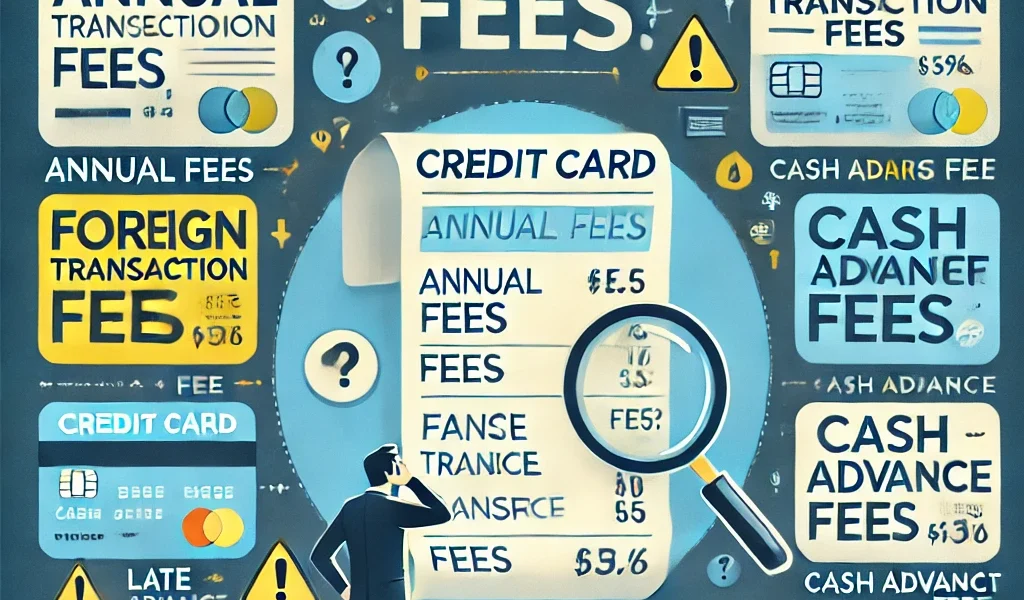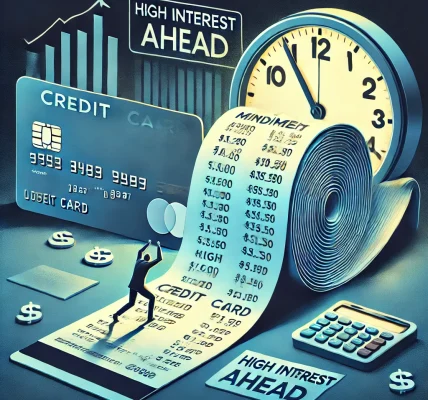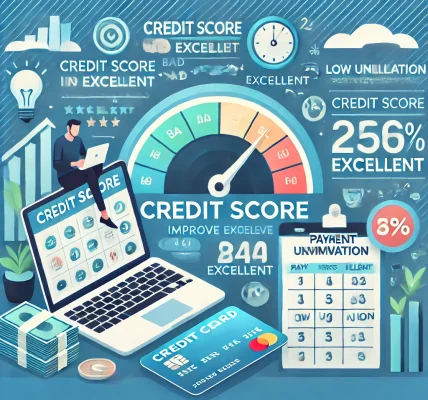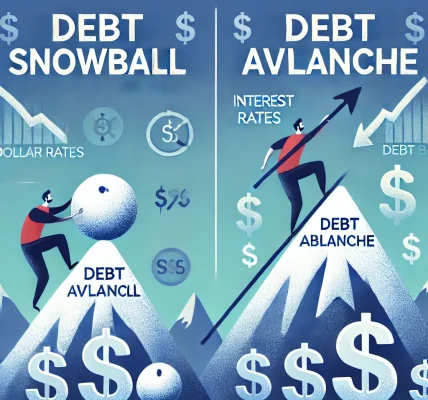Credit cards can be a convenient tool for managing expenses, building credit, and even earning rewards. However, many users unknowingly fall into the trap of hidden fees, which can quickly add up and affect their financial health. Being aware of these hidden costs can help you make informed decisions and save money in the long run.
In this comprehensive DIY guide, we will explore some of the most common hidden credit card fees, how they impact your finances, and actionable strategies to avoid them.
Common Hidden Credit Card Fees & How to Avoid Them
1. Annual Fees
Some credit cards charge an annual fee just for owning the card. These fees can range from $50 to $500 or more, depending on the card’s features and benefits.
How to Avoid It:
- Choose a credit card with no annual fee unless the benefits outweigh the cost.
- Call your credit card issuer and request a waiver or downgrade to a no-fee card.
2. Foreign Transaction Fees
When using your credit card for purchases made in foreign currencies or overseas, you may be charged a foreign transaction fee, typically 1% to 3% of the purchase amount.
How to Avoid It:
- Use a credit card with no foreign transaction fees.
- Consider using travel-friendly payment methods like digital wallets or local currency cash exchanges.
3. Balance Transfer Fees
Many credit cards offer balance transfer promotions, allowing you to move debt from one card to another at a lower interest rate. However, most issuers charge a fee of 3% to 5% of the transferred amount.
How to Avoid It:
- Look for cards that offer $0 balance transfer fees.
- Calculate if the long-term savings on interest justify the one-time transfer fee.
4. Cash Advance Fees
A cash advance allows you to withdraw money from your credit card, but this service usually comes with high fees. Expect to pay:
- A fee of 3% to 5% of the cash amount.
- An immediate high-interest rate (often above 20% APR) with no grace period.
How to Avoid It:
- Avoid using your credit card for cash withdrawals.
- Consider alternative options like personal loans or overdraft protection from your bank.
5. Late Payment Fees
If you miss a credit card payment, you could be charged a late payment fee of up to $40. Additionally, late payments can hurt your credit score and trigger penalty APRs.
How to Avoid It:
- Set up automatic payments or reminders to ensure you never miss a due date.
- Contact your credit card issuer to request a one-time waiver if it’s your first late payment.
6. Over-the-Limit Fees
If you exceed your credit limit, some issuers may charge an over-the-limit fee (though this is less common today due to regulatory changes).
How to Avoid It:
- Opt out of over-the-limit coverage to prevent transactions from going through when exceeding your limit.
- Regularly monitor your credit card balance to stay within your limit.
7. Returned Payment Fees
If your payment is returned due to insufficient funds, your issuer may charge a returned payment fee, usually $25 to $40.
How to Avoid It:
- Ensure your bank account has sufficient funds before making a payment.
- Set up payment alerts to avoid accidental overdrafts.
8. Reward Redemption Fees
Some credit cards charge a fee to redeem rewards, especially for travel bookings or cash-back conversions.
How to Avoid It:
- Check the credit card’s reward terms and conditions before applying.
- Opt for cards that offer free and flexible reward redemptions.
9. Inactivity Fees
Certain credit card issuers charge an inactivity fee if your card remains unused for an extended period.
How to Avoid It:
- Use your credit card for small purchases periodically to keep it active.
- If you no longer need the card, consider closing it strategically to avoid a credit score impact.
10. Interest on Promotional 0% APR Offers
Many credit cards offer 0% APR introductory periods on purchases or balance transfers. However, if you don’t pay off the full amount before the promotional period ends, you could be charged retroactive interest on the entire balance.
How to Avoid It:
- Pay off the balance before the promotional period ends.
- Read the fine print to understand when interest kicks in and at what rate.
How to Protect Yourself from Hidden Credit Card Fees
✅ Read the Fine Print
Always read the terms and conditions before signing up for a credit card to understand all potential fees.
✅ Monitor Your Monthly Statements
Regularly check your credit card statements to identify and dispute any unexpected fees.
✅ Call Your Issuer and Negotiate
If you get hit with a fee, don’t hesitate to call customer service and ask for a waiver. Many issuers will accommodate loyal customers.
✅ Use the Right Credit Card for Your Needs
Choose a credit card that aligns with your spending habits to avoid unnecessary fees. For example:
- Frequent travelers: No foreign transaction fees.
- Balance transfers: No balance transfer fees.
- Occasional spenders: No inactivity fees.
Final Thoughts
Hidden credit card fees can drain your finances without you realizing it. However, by being proactive, informed, and strategic, you can avoid these unnecessary costs and maximize the benefits of credit card usage.
Key Takeaways:
✔️ Many credit cards have hidden fees such as foreign transaction fees, cash advance fees, and late payment penalties. ✔️ Always read the fine print and understand a card’s fee structure before applying. ✔️ Take advantage of fee-free credit cards that match your financial habits. ✔️ If you’re ever charged a fee, contact your issuer to negotiate a waiver.




